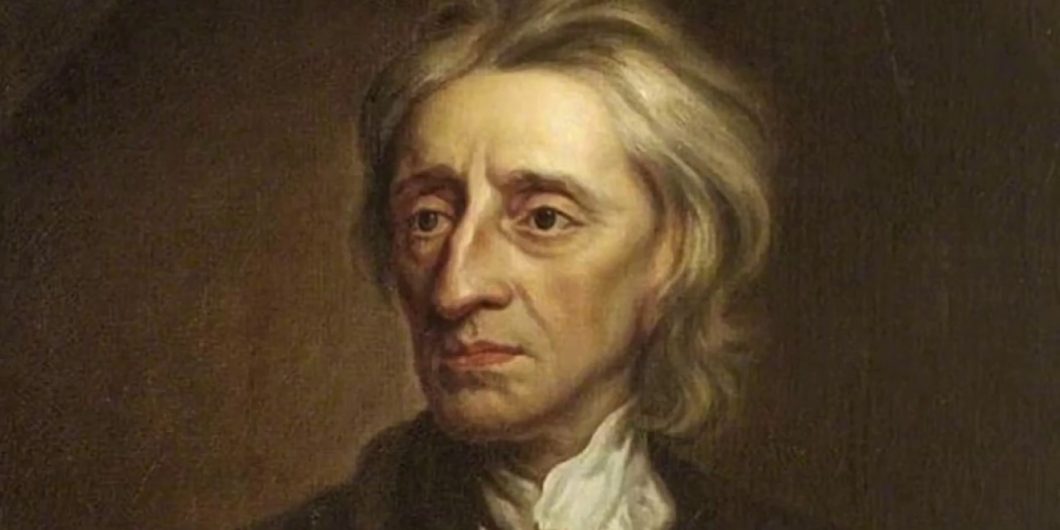It is simply too pat to point to bare economic inequality and decry it as necessarily unjust: pursuing equality can often harm growth.
Locke's American Legacy
In recent years it has become fashionable, and in some circles even compulsory, to express guilt over the European discovery and settlement of the Americas, as if from the perspective of the 21st century, this was an event to be regretted. Hence, even the 400th anniversary of the Pilgrims’ landing received no national commemoration. Indeed, the trustees of Plymouth Plantation, the living-history museum that has explained the Pilgrim settlement to schoolchildren and tourists since 1947, chose that very year to announce a change in the institution’s name to “Plimoth Patuxet” (the Wampanoag name for the location) as a way of signifying, in effect, that we should think of the spot as still really belonging to the native Americans who previously inhabited it.
This attitude, I should add, is far from limited to Americans, or even to residents of the Western hemisphere: the government of Australia just changed a word in the country’s national anthem, which previously celebrated the nation as “young and proud,” so that it now reads “one and proud.” The reason given for the change was that describing Australia as a young country disregarded the long existence of indigenous people in its territory, prior to its discovery and settlement by the British. (Of course, the land’s previous inhabitants had not identified themselves as a nation, nor is there any evidence that Australia’s constitution, economy, or culture derive from them.)
Another recent expression of the guilt that learned inhabitants of lands settled by Europeans centuries ago now profess is a December 26 op-ed in the New York Times by two distinguished Harvard scholars, the geneticist David Reich and the sociologist Orlando Patterson. In the column, the authors report that a recent analysis by Professor Reich of the DNA of “ancient Indigenous Caribbean people” demonstrates that prior estimates of the population of Hispaniola (the island now occupied by the nations of Haiti and the Dominican Republic) prior to Christopher Columbus’ landing were much inflated. Whereas estimates made by everyone from Columbus’ brother Bartholomew to present-day scholars “motivated by a desire to underscore how disastrous the arrival of Europeans was for Indigenous people” ran as high as over a million, Reich finds that “almost all prior estimates” of the population were “at last tenfold too large,” since the real number was “no more than a few tens of thousands.”
Despite this finding, Reich and Patterson conclude by emphasizing their “outrage” that European colonization of the Caribbean “resulted in such immense destruction that the rich cultures” of its indigenous peoples can be reconstructed today “only through a blend of oral tradition and scientific study.” And they take aim, in particular, at the great 17th-century liberal philosopher John Locke, whose thought exercised the greatest influence on the American Declaration of Independence and the American Revolution itself, for allegedly having represented the Americas as a whole as a “vast ‘vacuum domicilitum,’ or empty dwelling, populated by a handful of Indigenous groups whose displacement could be readily justified.”
While it is true that in the famous fifth chapter of his Second Treatise on Government, “Of Property,” Locke portrays America as a vast, undeveloped domain—representing what the entire world was like prior to the institution of private property and the attendant incentives it afforded to individual labor and economic development—Locke does not simply claim that the displacement of American Indians by European settlers accords with justice. Indeed, later in the Second Treatise (secs. 192-94), he expressly denies that conquest gives a conquering regime any right to command obedience from a subjected people, except insofar as the conquered people, or their descendants, can be judged implicitly to have given their consent to the government by the security it provides to their lives, liberties, and property. (It follows, Locke implies in Sec. 96, that the kings of England, having inherited their titles from foreign conquests centuries earlier, have no inherent claim to their subjects’ obedience, but owe their proper authority to their meeting that same standard.)
No country on earth has ever enjoyed a morally unblemished history. On the other hand, no country has ever elevated the condition of so many people as the United States.
It is impossible, then, on Lockean grounds, to judge the European colonization of the Americas by the standards of justice: if one traced the lineage of the peoples inhabiting Hispaniola back far enough, one would undoubtedly find that they had in their turn displaced others, and so on. No people can be said to have an inherent right to ownership of its land, as if it were autochthonous, any more than hereditary rulers possess an inherent right to govern others without their consent. (By contrast, during his term as the leading member of England’s Board of Trade, even while endeavoring to promote colonization, Locke worked assiduously to undermine the slave trade, as the historian Holly Brewer has documented, his efforts sadly having been overturned by Queen Anne—the practice of slavery being in direct contradiction to his principles, as he indicates at the outset of his Two Treatises.)
But how, then, should the colonization of America be assessed? Surely, even (or especially) if we focus our attention on the North American continent alone, the relative paucity of “indigenous” inhabitants, in comparison with the many millions who found refuge from poverty and oppression abroad, along with their descendants, is of some relevance. More importantly, what made it possible for the land to support such a vast population as it subsequently acquired was the institutions of political and individual freedom that the American founders established on these shores. As Locke observes, only with the secure establishment of private property, and the invention of money as a stable measure of exchange, would it become possible to replace undeveloped wilderness with ever-increasing wealth, acquired through industry, providing employment to multitudes (sec. 43) as well as increasing the general standard of living.
Much as some might idealize (as Thomas Jefferson did in his Notes on Virginia, and Alexis de Tocqueville did in his chapter on “The Three Races in America”) the freedom enjoyed by this continent’s indigenous peoples prior to the arrival of the Europeans, no serious person wishes for the civilization that was ultimately established as a result to be dismantled. Is there any reason to judge that indigenous oral cultures compared in “richness” with that which European civilization brought to these shores—including, one might observe, the sort of scientific and scholarly inquiries in which Professors Reich and Patterson engage?
The “outrage” that Reich and Patterson purport to experience is neither productive nor justifiable. Although they are scholars of undoubted accomplishment, this indignation is of a piece with that exemplified by the renamers of Plimoth Plantation, the rewriters of the Australian national anthem, and countless others, motivated either by a resultant sense of moral superiority, or by the fear of irritating those who represent themselves as “Woke.”
Such moral preening is not without its costs. As Matthew Continetti reports in his recent Commentary essay, “What Nathan Glazer Can Teach Joe Biden,” polls taken of Americans over the past two decades show an appalling decline of pride in their country—especially among racial minorities, college graduates, and women, who collectively predominate among “politically active Millennials and Gen Zers.” Continetti points out that “vituperation” directed at the United States “for its supposed endemic racism and imperialism was a feature of both the radical and Stalinist tendencies” that Glazer, an eminent social scientist, had witnessed during his college years prior to the Second World War—but which he gradually transcended, only to see them reiterated by the academic gurus of the New Left during the 1960s (C. Wright Mills, Herbert Marcuse, Noam Chomsky, and their ilk).
The crimes of the Spanish and Portuguese colonizers against the indigenous inhabitants of Southern America, as well as against the Africans they enslaved to serve them in the Western Hemisphere, were many (far more slaves were imported by the Iberians than by the English). And undoubtedly, American settlers and their governors sometimes committed atrocities (on a much smaller scale) against the Indians as well. But no country or civilization on earth has ever enjoyed a morally unblemished history. On the other hand, no country has ever elevated the condition of so many people, and served as a beacon (and fortress) of liberty, as the United States.
Unfortunately, as Continetti reports, the “disgust” expressed by an alarmingly high percentage of younger Americans against their country is fed in considerable measure by ignorance of the nation’s real history. Wokeism, increasingly instilled by their education (its latest iteration being the New York Times’s “1619 Project”) fills the gap formerly occupied by an appreciation of their country’s achievements, alongside its failings.
The fate of liberty may well hinge on the ability of the individuals who staff our academic institutions, including our most learned scholars as well as elementary and high-school teachers, to transcend the temptations of disdaining both Western civilization and American institutions, in favor of genuine intellectual honesty about our heritage.



